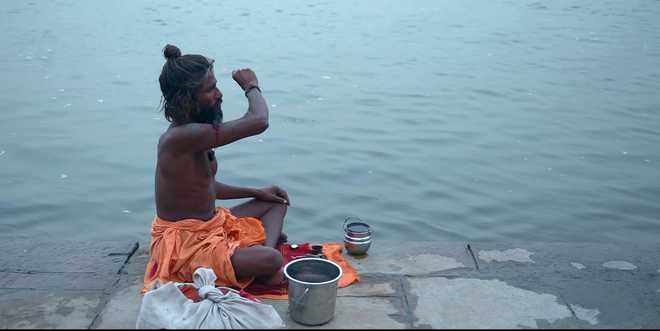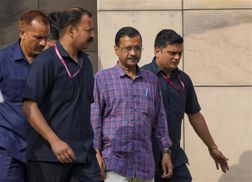
Nonika Singh
Silence speaks volumes, and in the language of cinema, too, stillness plays a very evocative role, heightening the emotional mood and tenor of the narrative. Many a celebrated director has optimised quiet pauses and expressive moods as a vital tool in the art of storytelling. But ever since sound was invented in cinema and talkies came to rule after 1931, except for an occasional Pushpak, silent films have been all but silenced.
Zero down to 2017 and the NFDC Film Bazaar, among many other things, surprisingly was buzzing for a very different reason. In its prestigious Viewing Room, seven films, six shorts and one feature, happened to be silent films. Pray, why the need to turn the clock back?
Haritrushi Purohit, who has made the silent film Let Her Play, spells his reasons, “We talk too much, we listen too much, yet we understand very little.” So to sharpen the sensibilities of what is essentially a garrulous nation, he decided to go silent for his three-minute short film that deals with a mother’s fears and says a thing or two about parenting. Coming from a background in advertising, he understands the power of imagery and the beauty of silence. A Charlie Chaplin fan, his mantra is, “Why add to the noise?” Dead serious and incredibly hopeful about the future of silent films in the pipeline is a full-length feature film. He says, “Silent films are classics. As Chaplin has proved, these can be a lot of fun and entertaining and convey a relevant message too.”
All of 20, Manasi Deodhar, who makes her debut with Chafa, dittoes that visual imagery doesn’t need the aid of language. Her short captures the picturesque splendour of the Sindhudurg region of Maharashtra and zeroes down on the flavour and fragrance of the rare flower chafa that blooms for only 12 days in a year. For producer Nisha Sujaan Malik, silence may not always be golden but for her film Rozana, which is a love story on the all-too-significant issue of the LGBT, words would have been superfluous. The film, which has already done the festival circuit, won major commendations. Divya Sharma, lead actress, shares how acting in a silent film is indeed way different, if not difficult. While the upside is, “You don’t need to remember the dialogues,” but to truly internalise the character, she did have many workshops with her director. Interestingly, in the making of these dialogue-less narratives, the process is more or less the same. Indeed, there is a screenplay. The master of silent films Charlie Chaplin may never have worked with a ready script, and Pushpak, too, hinged upon improvisation. But Manasi insists that storyboarding has to be more precise, “for words are not around to fill gaps”.
Junaid Shaikh has nothing against words per se, only in his silent film Karb that deals with child marriage and transition from childhood to motherhood, the emotional impact would have been completely diluted, if not lost, had he employed wordage. His next short, again a silent film, would even use the techniques prevalent in the silent era. But not all are moving into this realm with a conscious design. Varun Chowdhury, whose one-and-a-half-hour-long feature film Avichi was shown at the Kolkata Film Festival recently, didn’t intend making a silent film. He shares, “The first draft didn’t have dialogues, just the visual plotting. It’s only when we thought of writing dialogues that I realised that these just didn’t gel with the essence and soul of the film, which oscillates between hope and delusion.” Of course, making a silent film speak is no cakewalk. He had to align sound, music, scenography and expression in such a way that sound became the character’s inner monologue, music their dialogues and scenography the voiceover. Chowdhury, however, won’t go overboard and make pompous declarations such as silent films are more artistic or that there is a big future here or these are meant for evolved audiences. But at Kolkata, one response of a poet gladdened his heart. The poet told him how his film haunted him for days, and the only way he could break out of the spell was by writing poetry, something a film hadn’t inspired him to do in a long while. Other makers, too, share similar heartening experiences of audience’ feedbacks.
Masses may not be ready for the silence of films. The maker of Farewell Goddess, Amit Aggarwal might feel the subject will demand the form. Return of the silent era might be stretching it too much. But if filmmakers are learning to say it with just a smile, a furtive glance and sway of the hand, audiences, at least at the festivals, too are learning to read between the pauses and understand what Marcus Tullius Cicero said, “Silence is one of the great arts of conversation.”
Testing waters
Karthik Subbaraj, a 34-year-old engineer-turned filmmaker of acclaimed films such as Pizza and Jigarthanda has announced that his next film would be a silent thriller. Titled Mercury and revolving around students, it would star Prabhu Deva as the bad guy.
Between time & space
Amit Aggarwal, who has assisted Girish Kasaravalli, master filmmaker, always pares down dialogues and ups the visual quotient. His silent documentary Farewell Goddess, a montage of images, takes on the pertinent question: if we don’t have enough veneration for our idols, can we respect our environment? The film seems ideal as an installation piece for a museum. Cinema, he feels, is a medium of time and space, and if a filmmaker can take the audience in that space and time-frame without dialogues, the objective is achieved. “Even otherwise, I think dialogues should be minimal,” says Aggarwal.
Forever Chaplin
Sir Charles Spencer, better known as “Charlie” Chaplin, was an icon of the silent era. His onscreen character, The Tramp, has motivated generations of actors and filmmakers. Pushpak, too, was loosely inspired by his City Lights. Surprisingly, when Chaplin made City Lights which critics were to later judge as the “greatest piece of acting and highest moment in movies”, silent films were on their way out. But Chaplin, who believed that talkies lacked the artistry of silent films, refused to go with the flow. In his later films, however, he did use dialogues. Though he rarely spoke about his filmmaking process, his mannerisms and expressions remain an eternal rulebook for filmmakers and performers.
Speechless classic
When Kamal Haasan-starrer Pushpak came in 1987, it won critical acclaim. Hailed as a speechless masterpiece, the film won many awards, including a National Award. Kamal Haasan, however, felt it was a dialogueless film and not a silent one. Either way, it brought the house down and continues to be one of the best laugh riots India has produced. With actors pitching in pitch perfect performances, there wasn’t a dull moment or one that wasn’t understood.
First talkie
The love story between a gypsy girl and a prince, Alam Ara was the first sound film, which was released in 1931. Directed by Aredshir Irani, the film created magic at the boxoffice and its shows went houseful for eight weeks. Its music, too, was a great success and it gave Indian cinema its first song. Father of Indian cinema Dadasaheb Phalke, however, felt that silent films were an art form and sound affected its artistic quality. Talkies changed the course of Indian cinema forever.



























